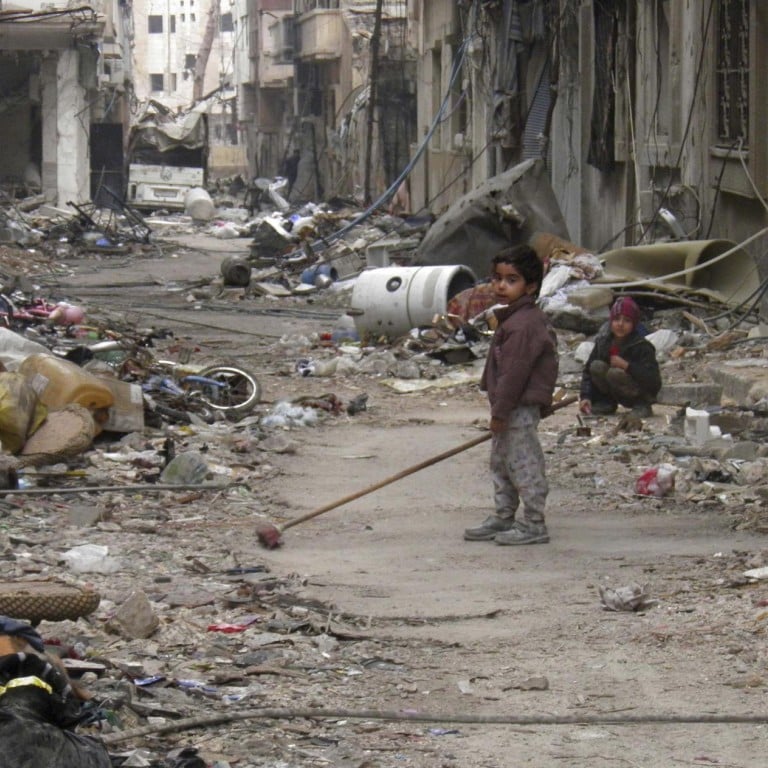
United States increases pressure to allow aid into 'starving' Homs
Damascussayswomen and children can leave besieged city and that it will let in humanitarian assistance by arrangement with the UN
The United States yesterday demanded that Syria allow aid into the "starving" city of Homs, as talks aimed at ending three years of civil war hit more trouble over the future of President Bashar al-Assad.
The Syrian government said women and children could leave the besieged city and that rebels should hand over the names of the men who would remain, but a US State Department spokesman said an evacuation was not an alternative to immediate aid.
"We firmly believe that the Syrian regime must approve the convoys to deliver badly needed humanitarian assistance into the Old City of Homs now," said spokesman Edgar Vasquez. "The situation is desperate and the people are starving."
He said the people of Homs must not be forced to leave their homes and split up their families before receiving aid.
After long months of fighting, much of Syria's third biggest city has been reduced to rubble.
The UN mediator said he hoped yesterday's talks in Geneva could tackle the central issue that divides the two sides - Syria's political future and that of Assad - but both sides adopted entrenched positions.
Syria's government delegation presented a document for negotiation which did not mention a transition of power, Syrian television said.
The government's "declaration of basic principles" said Syrians would choose a political system without "imposed formulas" from abroad, an apparent reference to Western and regional demands that Assad step down.
The opposition, which wants Assad to quit as part of arrangements for a transitional government, immediately rejected the proposal.
"The declaration is outside the framework of Geneva, which centres on creating a transitional governing body. It fails to address the core issue," chief opposition negotiator, Hadi al Bahra, said.
Syrian Deputy Foreign Minister Faisal Mekdad said he would meet UN mediators following the opposition's rejection of the government's proposal. "We are here to discuss terrorism, not a transfer of power," he said, using the government's blanket term for the revolt that grew out of peaceful protests in 2011.
Assad's media adviser Buthaina Shaaban said her delegation would leave for Damascus on Friday as planned but would return for a new round of talks when a date is set.
"We did not expect an easy ride in the talks but we have to persist until we find a solution for our people," she said.
Homs, occupying a strategic location in the centre of the country, has been a key battleground. Assad's forces retook many of the surrounding areas last year, leaving rebels under siege in the city, along with thousands of civilians.
Mekdad told a news conference on Sunday the government would let women and children leave the city centre if rebels gave them safe passage. UN mediator Lakhdar Brahimi said he understood they would be free to quit Homs immediately.
Watch: Where will Syria's refugees go?
Western diplomats said the Syrian government should move quickly to allow aid in or face a possible UN Security Council resolution, with Russia and China being urged to reverse their opposition to such a move.
"The ball is still in the regime's court. We understand that a report has gone back to Damascus," one diplomat said.
In Homs, opposition activists said rebels demanded a complete end to the blockade, not just a limited ceasefire. An online video showed demonstrators with Islamist flags denouncing the Geneva talks as "treachery".

